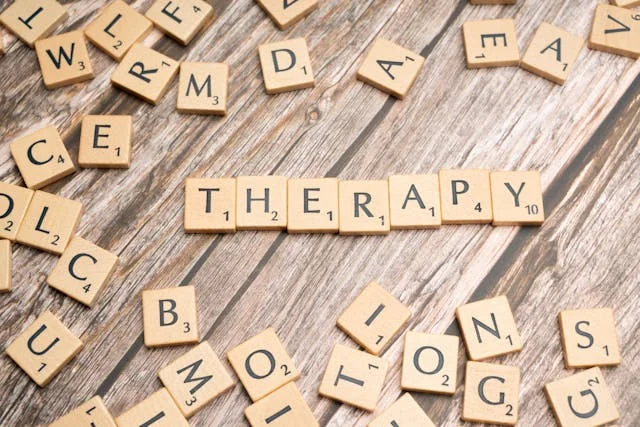Understanding Addiction in Johannesburg
A Johannesburg alcohol rehab is the perfect place for an alcohol addict to find recovery in a safe and secure environment. Very few people can notice themselves moving from being heavy drinkers to problem drinkers to alcohol addicts.
This disease develops insidiously until the victim suddenly discovers that it has entirely subsumed their life. If you find that you can’t stop drinking even though it is creating serious problems in your life, then you might be an alcoholic. The time you spend delaying the vital decision to take back your life exposes you to risk, hurt and pain. Our facility will offer you the sort of program you need to get better.

The Reality of Alcoholism and Drug Addiction
Johannesburg faces serious challenges with alcohol and drug addiction. Many people struggle with substance abuse daily. Common addictive substances include alcohol, cannabis, and cocaine.
Addiction can lead to job loss, broken relationships, and health problems. It affects people from all walks of life in the city. Some factors contributing to addiction in Johannesburg include:
• Stress from urban living • Poverty and unemployment • Easy access to drugs and alcohol • Peer pressure
 Get Help : 081 444 7000
Get Help : 081 444 7000Treatment options are available, but many people don’t seek help due to stigma or lack of resources. Johannesburg has several rehab centres offering support for those ready to recover.
Dual Diagnosis: Substance Abuse and Mental Health
Many people with addiction also have mental health issues. This is called dual diagnosis. Common mental health problems linked to addiction include:
• Depression • Anxiety • Bipolar disorder • Post-traumatic stress disorder (PTSD)
These conditions can make addiction worse. They also make treatment more complex. Rehab centres in Johannesburg often provide care for both addiction and mental health.
Effective treatment addresses both issues at the same time. This approach leads to better outcomes. It helps prevent relapse and improves overall well-being.
The Road to Recovery: Initiating Treatment
Embarking on the path to sobriety requires courage and professional support. The journey begins with detoxification and choosing the right treatment programme.
Detoxification: The First Step towards Sobriety
Detox is a crucial phase in recovery from alcohol addiction. It involves clearing the body of alcohol and managing withdrawal symptoms. The detox process can be challenging and potentially dangerous, so medical supervision is essential.
Many rehab centres in Johannesburg offer medically supervised detox programmes. These typically last 5-7 days, depending on the severity of addiction. During this time, medical professionals monitor vital signs and provide medication to ease withdrawal symptoms.
Symptoms may include:
• Anxiety and irritability • Tremors and sweating • Nausea and vomiting • Insomnia
Medical detox ensures patient safety and comfort, increasing the chances of successful recovery.

Evaluating Detox and Rehab Options in Johannesburg
Johannesburg offers various detox and rehab options to suit different needs and preferences. When choosing a facility, consider factors such as:
- Accreditation and licensing
- Treatment approaches (e.g. 12-step, holistic)
- Staff qualifications
- Amenities and accommodation
At We Do Recover, we provide personalised treatment plans. These may include individual therapy, group counselling, and family support programmes.
It’s important to evaluate both inpatient and outpatient options. Inpatient care offers 24/7 support and a structured environment, while outpatient programmes allow for more flexibility.
Consulting with addiction specialists can help determine the most suitable treatment path for long-term recovery.
Comprehensive Treatment Approaches
Johannesburg alcohol rehabs offer a range of evidence-based treatments and holistic approaches to support long-term recovery. These strategies address the physical, mental, and emotional aspects of addiction.
Integrating Evidence-Based Treatment and Therapy
Alcohol rehabilitation centres in Johannesburg use proven methods to treat addiction. These include cognitive behavioural therapy and motivational interviewing. Therapists work with patients in one-on-one sessions to address underlying issues.
Group therapy is also a key component. It allows patients to share experiences and learn from others. Many centres offer family therapy to heal relationships damaged by addiction.
Medication-assisted treatment may be used when appropriate. This helps manage withdrawal symptoms and cravings.
Adopting a Holistic Approach for Long-Term Recovery
We recognise that addiction affects all aspects of life; our multidisciplinary clinical team take a holistic approach to treatment, addressing physical, mental, and spiritual well-being.
This may include:
- Group counselling
- Family Therapy
- Mindfulness and meditation
- Occupational Therapy
- Individual Counselling
- Yoga
Personalised treatment plans ensure each patient’s unique needs are met. Aftercare support is crucial for maintaining sobriety after leaving the rehab facility.
Some centres offer alternative therapies to complement traditional treatments. These can help reduce stress and promote overall wellness.
Support Systems and Aftercare
Aftercare and support systems play a vital role in maintaining sobriety after rehab. These services help individuals navigate the challenges of early recovery and build a strong foundation for long-term success.
Navigating Aftercare Services and Support Groups
Alcohol rehabilitation centres in Johannesburg offer comprehensive aftercare programmes to support ongoing recovery. These often include regular therapy sessions, both individual and group, to address emerging issues and reinforce coping skills.
Support groups like Alcoholics Anonymous provide a safe space for individuals to share experiences and gain strength from peers. Many rehabs facilitate connections to these groups, easing the transition back to daily life.
Sober living homes offer a structured environment for those not yet ready to return home. These facilities provide a balance of independence and support, helping residents practise new skills in a controlled setting.
Relapse prevention planning is a key component of aftercare. This involves identifying triggers, developing coping strategies, and creating an action plan for high-risk situations.
The Role of Family in Recovery and Rehabilitation
Family involvement is crucial for successful long-term recovery. We Do Recover includes family therapy sessions to heal relationships and improve communication.
Education programmes help family members understand addiction and learn how to support their loved one’s recovery journey. This knowledge can reduce conflict and create a more stable home environment.
Family support groups allow relatives to share experiences and learn from others facing similar challenges. These groups can provide emotional support and practical advice for recovery.
Creating a supportive home environment is essential. This may involve removing alcohol from the house, establishing new routines, and encouraging healthy activities as a family unit.

Specialised Facilities and Programmes
Johannesburg offers a range of specialised rehab facilities and programmes for alcohol and drug addiction treatment. These options cater to different needs and stages of recovery.
Alcohol Rehab and Drug Rehabilitation Centres
Alcohol rehabs in Johannesburg provide comprehensive treatment for those struggling with alcohol addiction. These facilities offer detox services, counselling, and therapy sessions. Patients receive personalised care plans tailored to their specific needs.
Drug rehab centres focus on treating various substance addictions. They use evidence-based approaches like cognitive behavioural therapy and group sessions. Many centres provide both inpatient and outpatient care options.
Inpatient care involves living at the facility full-time. This allows for intensive treatment and 24/7 support. Outpatient programmes let patients attend therapy sessions while living at home.
Halfway Houses and Sober Living Environments
Halfway houses serve as a bridge between rehab and independent living. They offer a structured environment for those in early recovery. Residents typically stay for a few months while they build life skills and find employment.
Sober living homes provide a drug-free living space for those in recovery. These houses have rules and expectations to maintain sobriety. Residents often attend support groups and continue outpatient treatment.
Both options help prevent relapse by offering peer support and accountability. They allow individuals to practice recovery skills in a real-world setting.
Lifestyle and Wellness in Recovery
Recovery goes beyond quitting alcohol. It’s about building a healthy, fulfilling life. Wellness practices and lifestyle changes play a key role in maintaining sobriety and preventing relapse.
Incorporating Physical Fitness and Nutritional Guidance
Physical fitness is crucial for recovery. Regular exercise helps reduce stress, improve mood, and boost self-esteem.
Rehabs often provide personalised workout plans. These may include:
- Cardio exercises
- Strength training
- Group sports
Proper nutrition is equally important. Alcohol abuse can lead to vitamin deficiencies and poor eating habits. Rehabs typically offer:
- Nutritional assessments
- Meal planning guidance
- Cooking classes
A balanced diet aids physical healing and mental clarity. It also helps manage cravings and mood swings common in early recovery.

Mindfulness: The Role of Yoga and Meditation
Mindfulness practices are powerful tools for recovery. They help people manage stress, anxiety, and negative thoughts that can lead to relapse.
Yoga combines physical postures with breathing exercises and meditation. It can:
- Improve flexibility and balance
- Reduce stress and anxiety
- Enhance self-awareness
Meditation is another key mindfulness practice. It teaches focus and present-moment awareness. Regular meditation can:
- Lower stress levels
- Improve emotional regulation
- Boost overall well-being
These practices give people in recovery valuable skills for managing difficult emotions and situations without turning to alcohol.
Frequently Asked Questions
Johannesburg offers numerous alcohol rehabilitation options with varied programmes, costs, and durations. Support services and aftercare are available to aid recovery.
How does one access alcohol rehabilitation services in Johannesburg?
People can access alcohol rehabilitation centres in Johannesburg through referrals from GPs, hospitals, or social workers. Self-referrals are also common.
Many facilities have helplines or websites where individuals can enquire about treatment options. Some centres offer walk-in assessments.
What types of alcohol addiction treatment programmes are available in Johannesburg?
Johannesburg rehabs provide diverse treatment options. These include inpatient care, outpatient services, and day programmes.
Specialised therapies may include cognitive behavioural therapy, group counselling, and holistic approaches like art or music therapy.
Can one receive financial aid for alcohol rehabilitation in Johannesburg?
Some Johannesburg rehabs offer sliding scale fees based on income. Certain medical aid schemes cover a portion of treatment costs.
Government-funded facilities provide free or low-cost services. Non-profit organisations sometimes offer scholarships or grants for rehab.
How long do alcohol rehabilitation programmes typically last in Johannesburg?
Programme lengths vary widely. Short-term inpatient stays often last 28 to 30 days. Longer-term residential programmes can extend to 90 days or more.
Outpatient programmes may run for several months. The duration depends on individual needs and progress in recovery.
What is the success rate of Johannesburg alcohol rehabilitation centres?
Success rates vary among facilities and depend on many factors. These include the individual’s commitment, the treatment approach, and aftercare support.
Many centres track outcomes, but methods differ. It’s best to ask specific facilities about their success metrics and long-term follow-up data.
Are there aftercare services provided by alcohol rehab facilities in Johannesburg?
Most Johannesburg rehabs offer aftercare services. These may include regular check-ins, support groups, and relapse prevention workshops....
Some facilities provide sober living houses or ongoing counselling. Aftercare helps maintain sobriety and supports long-term recovery.